#Gender performance
Explore tagged Tumblr posts
Text
"I have no interest in coddling men" actually means "I'm one of the most racist/fatphobic/terfy/classist motherfuckers you're ever going to meet, and I know exactly which axis to attack you on to expose the vulnerabilities of those marginalized classes." See if they ever decide to stop "coddling" the 6'2 daddies or the perfumed and performing twinks, fucking unlikely.
#feminism#transphobia#transandrophobia#feminist discourse#queer discourse#gender performance#gender#masculinity#nonbinary#male socialization isn't real
192 notes
·
View notes
Text
Having a conversation with trans-identified women gives me the same feeling as talking to a brick wall. They all go the same, so I'll just summarize a discussion I've had on here a while ago.
Socks (they/he/xe): "Oh, I identify as non-binary because I never associated with femininity, and I never felt attached to womanhood" (i.e. she doesn't like to conform to gender roles)
me: "You know womanhood isn't a feeling, right? Nobody, including myself, feels like a woman."
Socks (they/he/xe): "If you say that you should probably question your gender identity. You are probably trans. Gender is a feeling. You should read this (outdated) study about how trans people's brains are actually the opposite sex!"
me: "That's neurosexism. Also, it has been debunked. Don't you have any other arguments?"
Socks (they/he/xe): "Kill yourself TERF!!! You're probably just a trans man in denial!! Stop being transphobic!!"
#radblr#radical feminism#radical feminists do interact#radical feminist safe#terfsafe#terfblr#transgender#gender critical#gender performance#gender stereotypes#nonbinary
394 notes
·
View notes
Text
#gender feels#gender thoughts#gender jokes#polls#gender is a performance#gender performance#lgbt+#enby stuff
1K notes
·
View notes
Note
What’s your view on toxic female friendships. I think it’s such a shame betrayal seems to be more common theme in female friendships. Men seem to have life long friends without any drama at all. Of course there are women out there with good life long friends but sadly it’s rare especially in this era we live in
xx
I think the underlying themes here are patriarchy and internalized misogyny. It can appear in blatant forms like women who sabotage each other for male attention, body/appearance/slut shame other women, or overly criticize other women's behavior and choices.
But I also believe there's a more covert patriarchal dynamic to women-women friendships vs. men-men friendships that's only recently become a prominent conversation in the public sphere/social media. As women, we're taught that it's our responsibility and culturally conditioned to perform all the emotional labor for the people in our lives – mainly men, but also other women. Men are taught and socialized with the opposite mentality.
So, I believe the dilemma comes down to this:
Female friendships exist as an outlet to unload our emotional stressors from all the men and women in our lives, so along with strict standards to be the "perfect" woman, it is easy for women to get on each other's nerves/bad side when we're all constantly emotionally exhausted and unloading onto each other. We overemphasize the emotional labor we should expect out of each other because we are conditioned to do this for the men in our lives. But, because other women aren't men, we start to resent/project onto them this anger. It's a very insidious type of internalized misogyny that I think a lot of women aren't aware of and therefore do not confront.
Then, there's the other side of the coin, where men don't really have these expectations of other men. Their friendship is based more on camaraderie through mutual interests, upbringing, lifestyles, or shared experiences (like working together, attending the same university, etc.). They don't uphold this expectation of performing emotional labor for themselves or each other. That role is reversed or the women in their lives.
Of course, I believe most men are so socially conditioned by patriarchy that they don't even realize this underlying dynamic and there are plenty of exceptions of emotionally intelligent men who desire to/actively unpack this to create more emotionally nourishing and equitable relationships in their lives, but I'm speaking in generalities for comprehension's sake.
Hope this resonates with some of you and answers your question. Bisous xx
#female friendship#male friendship#gender norms#gender roles#patriarchy#gender dynamics#women's empowerment#feminist#feminism#female socialization#male socialization#social norms#social commentary#gender performance#intersectional feminism#femmefatalevibe#q/a
142 notes
·
View notes
Text
All the world's a stage and baby I'm getting booed off for my gender performance
36 notes
·
View notes
Text
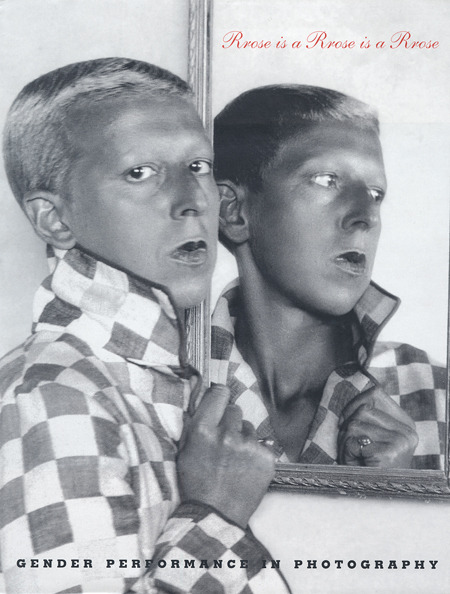

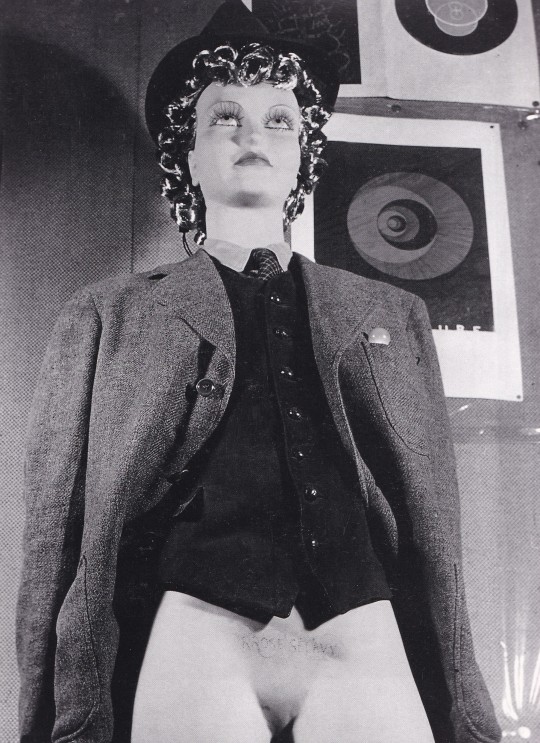

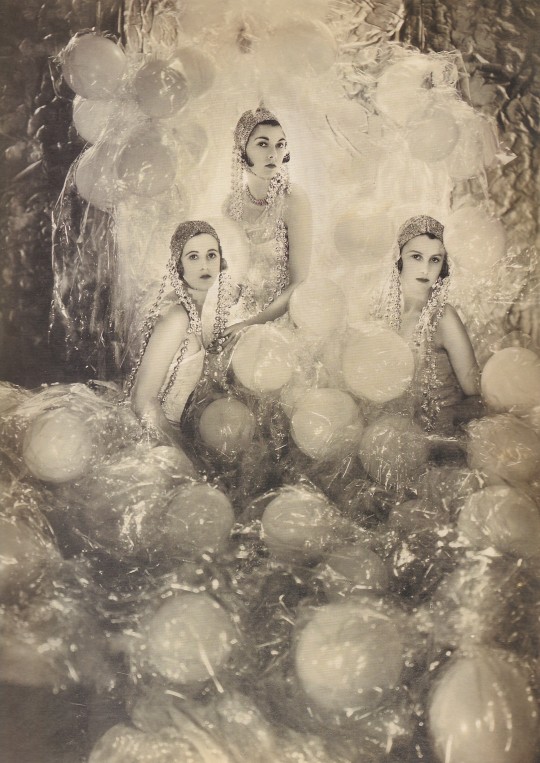
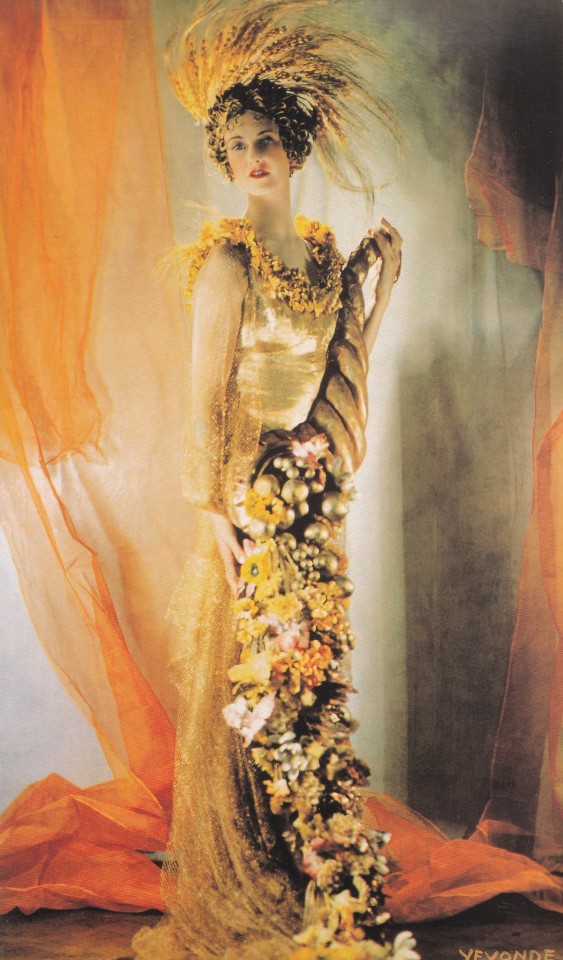
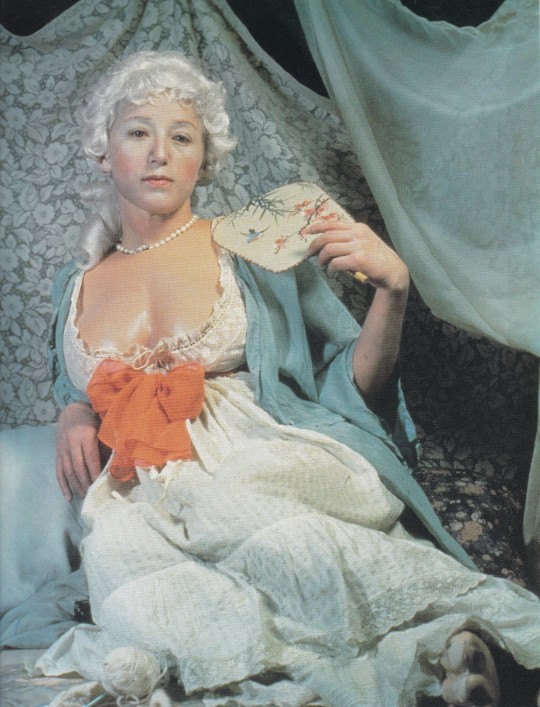
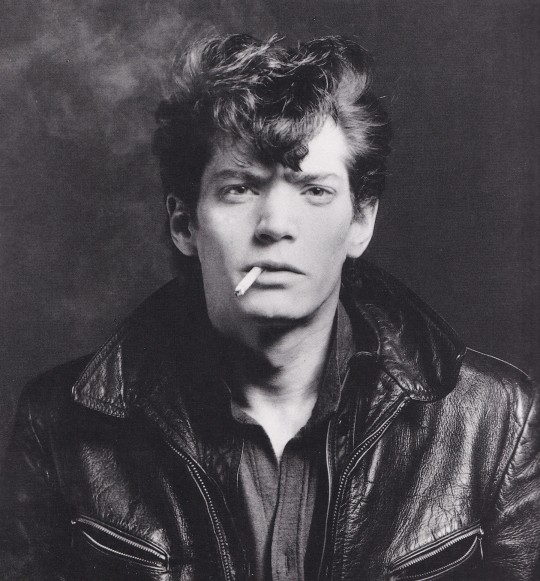

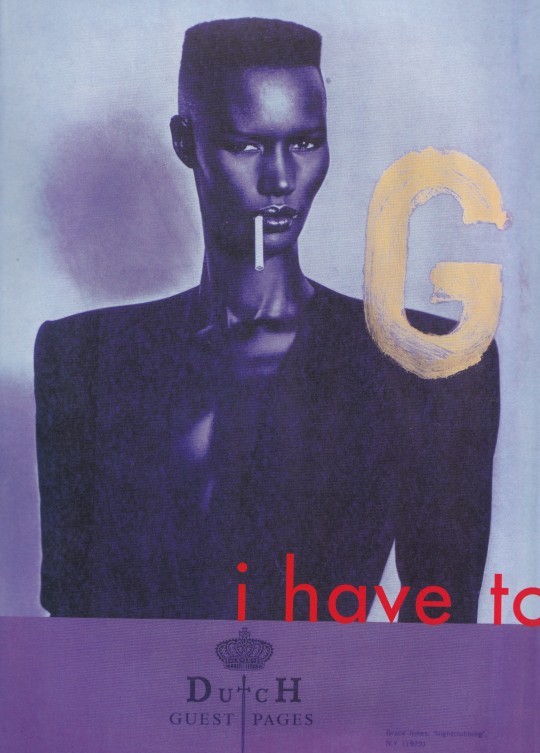
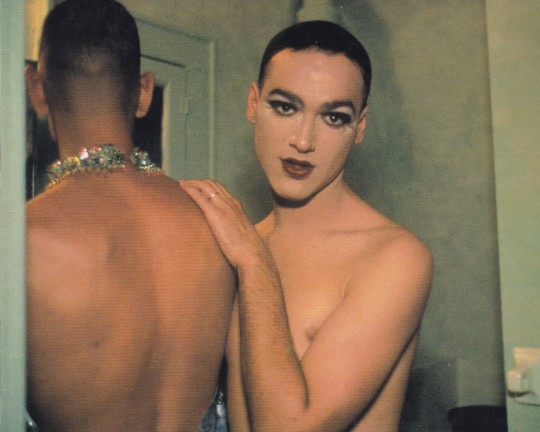
Rrose is a Rrose is a Rrose
Gender Performance in Photography
Jennifer Blessing
with contributions by Judith Halberstam, Lyle Ashton Harris, Nancy Spector, Carole-Anne Tyler, Sarah Wilson
Guggenheim Museum Publ., New York 1997, 224 pages, softcover, 27,30x33,65cm, ISBN 0-89207-185-0
euro 120,00
email if you want to buy [email protected]
Exhibition New York January 17- April 27, 1997
This important volume, whose title combines Gertrude Stein’s famous motto, “Rose is a rose is a rose is a rose,” with the name of Marcel Duchamp’s feminine alter ego, Rrose Selavy, features portraits, self-portraits and photomontages in which the gender of the subject is highlighted through performance for the camera or through technical manipulation of the image. In many of the works, photography’s strong aura of realism and objectivity promotes a fantasy of total gender transformation. In other pieces, the photographic representation articulates an incongruity between the posing body and its assumed costume. Features work by Cecil Beaton, Brassai, Claude Cahun, Marcel Duchamp, Hannah Hàch, Man Ray, Janine Antoni, Matthew Barney, Nan Goldin, Lyle Ashton Harris, Robert Mapplethorpe, Annette Messager, Yasumasa Morimura, Catherine Opie, Lucas Samaras, Cindy Sherman, Inez van Lamsweerde and Andy Warhol.
02/05/24
#gender performance#photography books#Beaton#Brassai#Duchamp#Man Ray#Mapplethorpe#Cindy Sherman#Warhol#fashionbooksmilano
36 notes
·
View notes
Text
Gender is a performance and I don't have enough spoons to bother trying.
#genderqueer#nonbinary#queer#actually autistic#actually adhd#non-binary#gender performance#neurodivergent#this is framed as a joke#but I think it might also be factual
313 notes
·
View notes
Text
I never thought I'd find something made by The Try Guys genuinely healing but here we are
(For anyone wondering, this is from the series New Guy Tries, the first episode is currently free on their youtube, the full series is on their streaming platform)
#try guys#2nd try#ash perez#transgender#trans man#masculinity#gender norms#gender performance#its all made up#what is a man?
19 notes
·
View notes
Text
Just a reminder
Women don’t owe you pretty
Women don’t owe you kindness
Women don’t owe you a smile
Women don’t owe you femininity
Women don’t owe you a response to your unsolicited d*ck pic
Women don’t owe you sex
Women don’t owe you jackshit
I never feel less connected to womanhood than when a man tries to tell me how to perform it.
#woman#womanhood#feminism#feminine rage#misogny#misandry#vent#vent post#personal#personal vent#alone with my thoughts#im just a girl#gender performance
10 notes
·
View notes
Text
In most societies for which we have information, men are the warriors, hunters, and processors of raw materials related to weaponry and tools. Women have sometimes acted as full-time warriors and hunters, wielding the same weapons as men and displaying the same success (see discussion of the Dahomeans that follows). Such examples, however, are few and occur under special circumstances.
In a study of the sex assignment of 50 work activities in the 186 societies of the Standard Cross-Cultural Sample, George P. Murdock and Caterina Provost identify 14 activities that are performed strictly by males in nearly all societies. These activities are of two general kinds: 1) hunting and butchering, and 2) processing of hard or tough raw materials (such as smelting of ores, metalworking, mining, and quarrying).
There are no technological activities that are strictly feminine, though cooking and the preparation of vegetal foods come close. Murdock and Provost explain the occurrence of the strictly masculine tasks on the basis of the greater physical strength of males and their superior capacity for mobilizing it in brief bursts of excessive energy. They also suggest that females are attached to the household by "burdens of pregnancy and infant care."
Douglas R. White, Michael L. Burton, and Lilyan A. Brudner provide a different explanation for the strictly male tasks. Although they do not deny the existence of human sexual dimorphism, they note that there is plasticity in the development of physical strength, so that cross-culturally there is considerable diversity in the degree to which males are stronger than females. In addition, they observe that many of the strictly male tasks require relatively little physical strength. Danger, long distance travel, and "economies of effort," they suggest, more than physical strength or the constraints of child care, explain the existence of strictly male activities. Other anthropologists have also commented on the importance of danger and travel. Judith K. Brown, for example, has argued that given the great importance attached to bearing children, it would be inefficient for a society to expose nursing mothers or childbearing women to danger. Ernestine Friedl points out that men are the expendable sex because they are not the bearers of new additions to the work or warrior force. White, Burton, and Brudner take the argument a step further by introducing the notion of efficiency in the utilization of learned skills: "There are economies of effort in having the same persons perform adjacent tasks in production sequences, since adjacent tasks often require similar technological skills, and are often performed in similar contexts." Thus, the performance by women of tasks that are consistent with nursing and child care (in many but not all cases) and the performance by men of tasks that are consistent with travel and danger are a consequence of efficiency considerations - not of intrinsic features of the tasks.
It is also helpful to understand that strictly male activities provide males with a means for defining and displaying the adult male gender identity. Usually people define their sense of self as male or female by what they do. The female gender identity is automatically defined, at least for tribal peoples, by childbearing and nursing. What comes to women naturally and provides them with a set of discernibly female activities comes to men more artificially. Perhaps because women have ways of signaling their womanhood, men must have ways to display their manhood.
Stressing the importance of the male role for male gender identity, Margaret Mead says: "The recurrent problem of civilization is to define the male role satisfactorily enough. . . so that the male may in the course of his life reach a solid sense of irreversible achievement, of which his childhood knowledge of the satisfactions of childbearing have given him a glimpse." The male role is often defined as what the female role is not. If female activities are associated with the qualities of reproduction, male activities are associated with the opposite qualities. As femaleness is linked to fertility and growth, maleness is linked to infertility and death. Sometimes these sex-linked attributes are projected onto animate and inanimate objects in the environment. For example, in a New Guinea highland society, certain foods are identified with the "juicy, soft, fertile, fast-growing" qualities of women and other foods are identified with the "dry, hard, infertile" slow-growing qualities of men. Men in this society publically avoid the female foods (which they may eat in secret) in order to preserve their gender identity and, likewise, women publically avoid the male foods.
The equation between hard:soft—infertile:fertile—male:female is present in many societies. The hard:soft—male:female equation is implied by the kinds of manufacturing activities assigned to men as compared to those assigned to women. As noted before, raw materials that are hard or tough are processed strictly by males. Soft and pliable raw materials are more often (though not exclusively) processed by females. Only men work in metal, stone, bone, and wood. Women, more often than men, make baskets and mats, do loom weaving, make pottery, and spin.
-Peggy Reeves Sanday, Female Power and Male Dominance: On the Origins of Sexual Inequality
12 notes
·
View notes
Text
Gender roles, gender performance, and sex stereotypes: from a transmasc perspective
I think it's not "wrong" to have things we consider "feminine" or "masculine" or "androgynous", as long as we remember that these categories are not rigid boxes, they are not inherently connected to someone's sex or their gender, and that they are highly personal, highly cultural, flexible, fluid, and blurred.
"Well at that point they're basically useless!" you may say. And it's ok if you feel that way, as long as you don't abuse someone who feels happiness when engaging in their own personal definition of femininity, masculinity, or androgyny. It is not a problem if a trans man says "I do X thing that I consider masculine and that my culture considers masculine, and it is very validating of my gender as a trans man."
It becomes a problem if you believe men must do X, or that if someone does X, they must be a man or must want to become a man. That type of thinking is the belief that certain genders have prescribed roles. Gender roles are where freedom dies. Gender roles are inseparable from sex stereotypes - because of this, gender roles are inherently transphobic. The idea that females are more nurturing, that males are more violent, etc - those sex stereotypes are what created gender roles, because for most of human history, we did not have a social separation between sex and gender. If you were female, you were a woman. So you cannot have gender roles without sex stereotypes: they are the same beast. They are sexist, misogynistic, and transphobic.
Gender identity is your internal sense of gender. It is not the same thing as gender roles, nor is it the same thing as gender performance. It is completely disconnected from all of that. Having a gender is not problematic.
Gender performance is a highly personal endeavor. This is where an individual synthesizes every part of who they are: their internal sense of gender, their internal sex, their external desire for how they want to be perceived, their cultural expectations of masculinity/femininity/androgyny, their personal definitions of those concepts, etc.
A person's gender performance does not always "match" their gender identity in ways you might expect. A person may be perfectly happy being perceived and treated as a man by strangers but as a woman by loved ones. In other cases, folks tailor their gender performance to match their gender identity. In some cases, people are multigender or gender fluid! Having your gender identity and presentation vary is completely valid. Again, this is because there aren't actually boxes; everything is changeable.
40 notes
·
View notes
Text
"The performative roles that are enforced onto us reproduce harmful social relations, instilling onto us a preset of prejudiciary behaviors and ideals about what a man and woman is and how they're "supposed to be" in a "good society".
Instead of seeing personhood first, we are instilled with a gendered framework of treating the other person as the prescribed characteristic of what femininity and masculinity is supposed to be, and whether they perform to this prescription or not.
However, humanity itself is more complex than this reductive vision of putting some in to "Block A" or "Block B". Instead, a spectrum of interconnected complexity and performances that cannot be neatly contained into pink and blue boxes.
Hell, even sex itself is bimodal, which explains the existence of intersex people. A post-gender society can only exist when the institutions and systemic consequences of patriarchy have long died.
In the meantime, we can only work towards advancing and progressing notions about gender, and working to dismantle the hierarchies that the binary puts onto us, perhaps reaching a point where we no longer need the gender categorization to meaningfully ourselves in our own unique way."
"Anarcho-Transhumanism" - Post-Comprehension
#post comprehension#youtube#anarchism#transhumanism#gender#gender theory#intersex#gender binary#patriarchy#colonialism#maria lugones#renegade cut#feminism#uploads#gender performance#sociology#masculinity#gender wars#gender abolition#postgenderism
8 notes
·
View notes
Note
opinion on drag queens?
Not a fan of them. I don't care if you are doing it under the guise of "art": dressing up as an exaggerated female caricature and throwing around words like "cunt" is misogynistic. And if you still insist Drag is an art, at least acknowledge it's a misogynistic one. Why do people find Drag shows funny? Seriously, do you think men masquerading as women with huge boobs and skimpy dresses are making fun of misogynistic stereotypes, and actively exaggerating them to point out how ridiculous these stereotypes are? Or are they just making fun of women? Parody can be used as a tool of awareness and subversion, but this kind of humor is just one-dimensional and purposeless. These men also always feel entitled to use derogatory language toward women, as if putting on a wig makes them similar to us, and even elevates them to some sort of femininity guru. Ultimately, I just find Drag Queens to be a tasteless show of misogyny behind the disguise of self-expression.
#radblr#radical feminism#radical feminists do interact#radical feminist safe#gender performance#terfsafe#radical feminists do touch
62 notes
·
View notes
Text
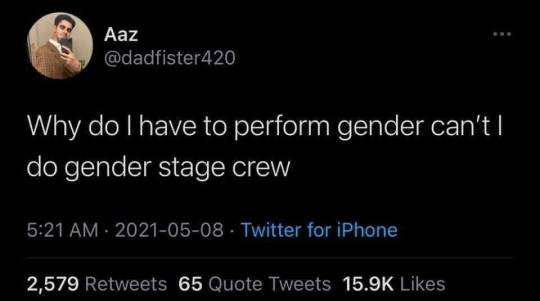
My friend said "In this case I think I’d be gender dramaturgy"
43 notes
·
View notes
Text
Gender is a performance and I am
s Rodeo Clown 🤠
#it's an elaborate costume to do my silly little bits#I've been saying this for years#gender is a performance#and i am a rodeo clown#gender things#gender performance#performative gender#non-binary#nonbinary#yeehaw#rodeo clown#pat's post
67 notes
·
View notes
Text
for me having a more feminine outfit/makeup is no longer gender dysphoria, its cosplaying a hot girl and i stand by it
#im going to a party in the most flowy flowery pinkish dress in history#cosplaying a pretty girl like a good nonbinary chap i am#nonbinary#gender#gender performance#jamie says things maybe 3 people will read and thats okay
3 notes
·
View notes